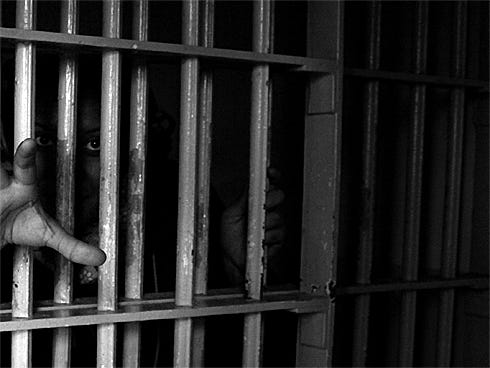
An accurate estimation of people with serious mental disorders who are booked into U.S. jails each year is difficult to find, but one solid figure from Psychiatric Services puts it at 2.1 million. That estimate drastically increases when factoring in state and federal prisons.
A report from the Treatment Advocacy Center says there are more mentally ill people in jails and prisons than in hospitals, which should raise all kinds of ethical questions regarding the state of care for mentally disabled people, U.S. prisons and even our philosophy of justice, says retired physician Mohinder Goomar.
“Our judicial system is based on the fundamental concept of individual culpability, that someone with reasonable control of his or her faculties has the power of free will and the ability to obey the law; doesn’t the imprisonment of those with severe mental disability break the law’s own rules?” says Goomar, author of “It’s Just My Opinion,” (http://tinyurl.com/koshnfd), which discusses his experience with dissociative identity disorder (DID), formerly known as multiple personality disorder.
Goomar discusses the role of prisons and jails today as centers for mental disorders.
• Depressing facts about prison in the U.S.:The number of people incarcerated in prisons has exponentially swelled from 500,000 people in 1980 to 2.3 million in 2008, according to the National Association for the Advancement of Colored People. And, while the U.S. has 5 percent of the world’s population, it houses 25 percent of its prisoners. Since 2010, nearly $4.35 billion in funding for mental health services has been cut from state budgets across the nation, according to the National Association of State Mental Health Program Directors.
• Some recent history:Large hospitals specifically geared toward housing and rehabilitating the mentally ill used to exist, but were closed during the 1970s. Some patients are among the homeless; others have gone to jail, and many have been both jailed and homeless. The old facilities closed with the idea that community-based care would step in and provide better treatment, which never happened. Detention facilities are now forced to house the psychologically distressed who commit crime, but jails and prisons cannot force inmates to take medication. • The lose-lose scenario: People with major psychological disorders are significantly more likely to be sexually victimized by other inmates, according to the Justice Department, which recently reported rampant sexual abuse by staff members at Alabama’s Tutwiler Prison. There, nearly 900 incarcerated women were repeatedly exposed to a toxic environment of open sexual acts. Additionally, for the prisoner who is simply doing time, being housed with criminals and the mentally ill takes a deteriorating toll on a relatively stable mind. Far from rehabilitation, prison in the U.S. today further unhinges the incarcerated.
“I think most voters say to themselves, ‘I’m a good person’ and ‘I’ve done a good job raising my children,’ and they probably think that those who land in prison simply deserve to be there, so there’s very little will to improve conditions for the incarcerated,” Goomar says. “But I think we have to admit that some psychologically disturbed adults cannot control their impulses, and we would be a better society if we emphasized treatment over punishment.”
About Mohinder Goomar
Mohinder Goomar is a former medical doctor who, after emigrating from India, became board certified by the American Academy of Ophthalmology and Otolaryngology and became an American citizen. He was chairman of the surgery department at Saratoga Hospital, in New York, had a private practice for head and neck surgery. After experiencing mood swings and a distortion of judgment, Goomar was diagnosed with dissociative identity disorder (DID). He was rehabilitated at a facility and lost his medical license for two years – to be followed by reinstatement of the license. Due to his DID experience, he did not have his license reinstated. His book, “It’s Just My Opinion,” (http://tinyurl.com/koshnfd) details his experience.
This article originally appeared on Crestview News Bulletin: Does imprisonment of mentally ill inmates delegitimize the judicial system?
